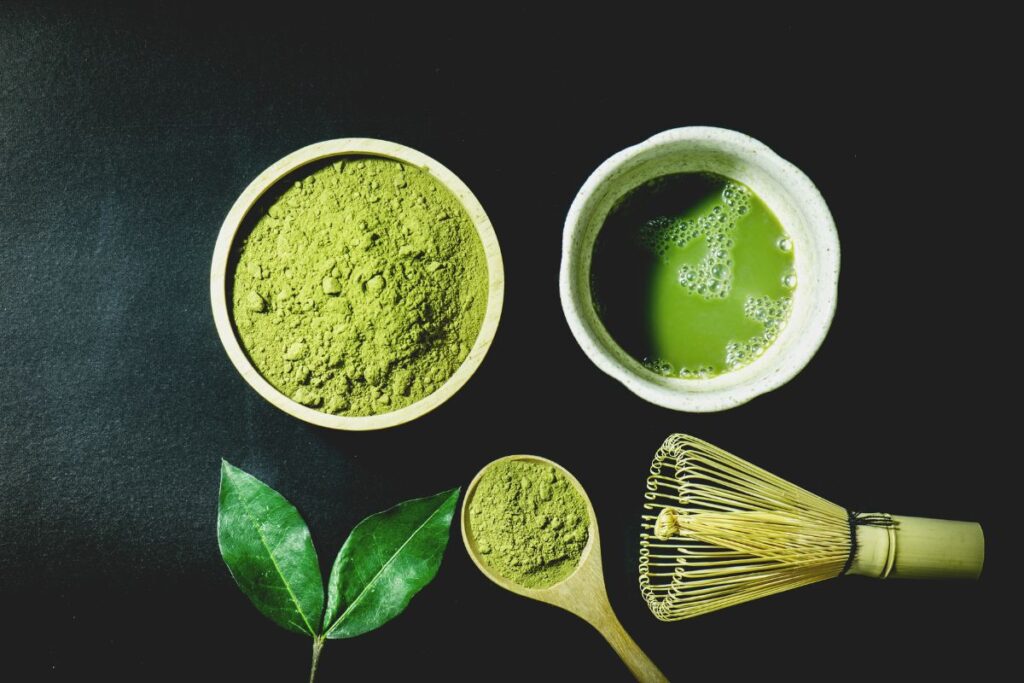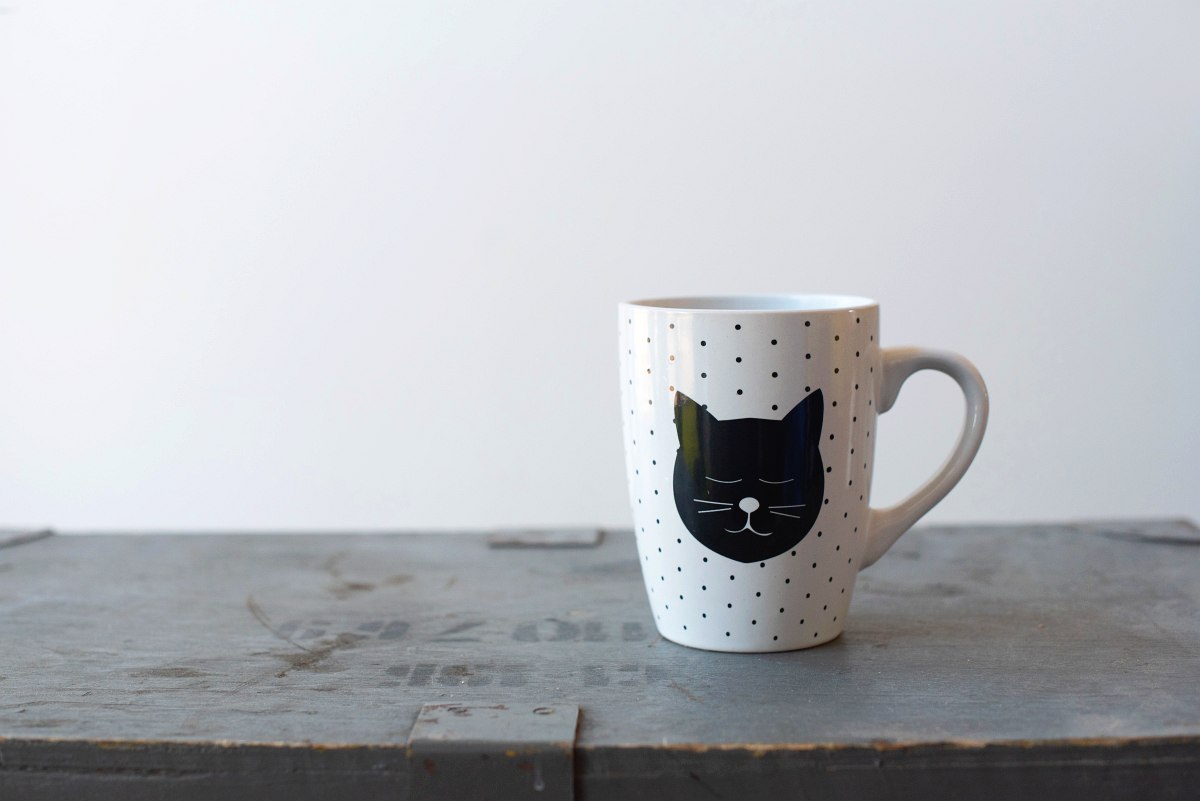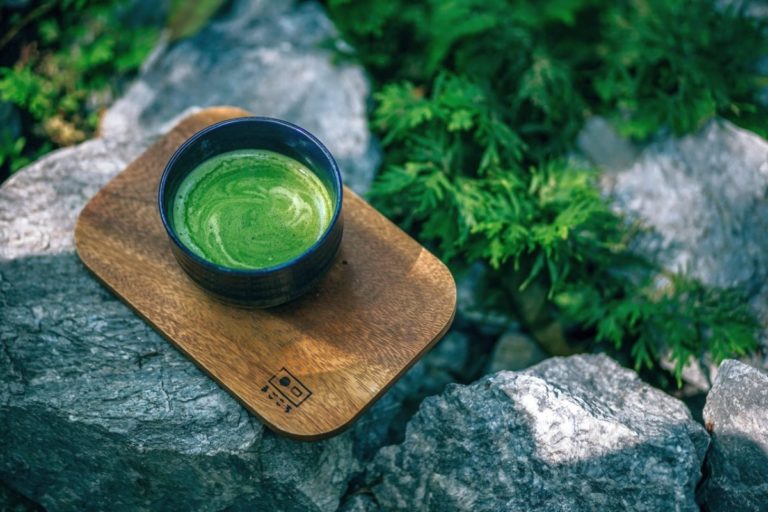Get ready to know all of the most important facts and bits of information about two of the hottest (pun intended) beverages right now. All of the questions you have about coffee vs matcha, answered.
Affiliate disclosure
This page may contain affiliate links – we may earn a small commission when you make a purchase through these links. This is at no extra cost to you.
What is matcha tea?
Matcha is a type of green tea that is mostly consumed in East Asia. The tea leaves are grown exclusively under the shade, so they develop a darker color and a stronger flavor.
Additionally, instead of being dried for later infusions like all other types of tea, these leaves are ground down into a fine powder.
This is what we call Matcha.
By the way, have you had a look at our deals page yet?
Is matcha a good alternative to coffee?
Quite honestly, it depends on your personal taste.
Matcha has a different flavor which isn’t as bitter but it also isn’t as aromatic as coffee.
In general, though, matcha goes great with cream and milk just like coffee would. It is easier to prepare and has a similar caffeine content.
Caffeine content of matcha vs coffee
Matcha contains around 70mg of caffeine per teaspoon.
This rounds out to around 100mg of caffeine per cup, although it depends on how much you use.
Because of the special growing method we mentioned before, this green tea has a much higher natural incidence of caffeine than other types of tea.
In other words, their caffeine content is very similar but it is easy to go overboard with matcha because a single teaspoon puts you at almost double the caffeine content of a regular coffee cup.
It’s also important to talk about L-Theanine, an amino acid found in green tea.
This amino acid has both stimulant and calming properties, and it is thought to improve focus, particularly when in combination with caffeine.
So, arguably, matcha is a better stimulant than coffee!
Matcha vs Coffee antioxidants
Coffee is full of antioxidants.
It is in fact the most important source of antioxidants in the western world, making it a very important part of all our diets.
Matcha, however, is also full of antioxidants—more so than coffee.
Because matcha contains the whole tea leaf, it ends up having a much higher amount of antioxidants than coffee.
Is matcha acidic?
Acidity in our coffee is a real problem. It can cause some serious discomfort and even cause ailments such as gastric reflux, which worsens over time.
Some people even have to quit drinking coffee because of its acidity.
Something is acidic when it has a low pH. Green tea, in general, has quite a high pH. While coffee has a pH of around 4-5, Matcha ranks higher than even regular green tea at 9.
So, no; matcha isn’t acidic. It’s actually quite the opposite!
Health benefits of matcha vs coffee
Now that we’ve discussed caffeine and antioxidant content, which one is healthier, really?
It really depends on your individual needs. Caffeine content is sometimes a health concern, and matcha makes it hard to accurately track how much of it you’re ingesting.
And even though matcha is high in antioxidants, coffee is already quite high in antioxidants. A few cups of coffee already puts you at over half the daily recommended intake of antioxidants.
Matcha would probably meet the RI with just one or two cups, however, It really is up to you, and both beverages are two of the healthiest ones you can drink.
Is matcha good for digestion?
It is, actually!
Because matcha is very low in sugar, it is very good for your gut.
Sugary drinks, which coffee tends to be, can cause inflammation and indigestion.
Black coffee itself is neutral but in truth not many people drink black coffee regularly.
Matcha, which is traditionally enjoyed without sweetener, is a very good choice if you suffer from gut discomfort.

Benefits of matcha tea vs coffee
Both have similar amounts of caffeine and just as you can make a coffee stronger (more caffeinated) by using more grounds, the same happens with matcha.
Although, matcha is easier because it’s just a powder that you mix into water. So, in that respect, matcha does come out as a winner: more convenient, more caffeine.
Coffee also has a lower amount of antioxidants—about two to three times less than matcha.
Can you mix coffee and matcha?
Yes! It is actually a popular way of drinking coffee, and it is called a matcha latte.
The practice started in Japan, where there is a rich coffee culture and also where matcha is native to.
A shot of espresso is mixed with matcha and then it is transformed into a greenish/blueish latte.
Matcha actually compliments the flavor of coffee a lot and they are enjoyable together even without the presence of milk.
Is matcha better than coffee?
The science says that yes, matcha is better than coffee. It has more antioxidants and almost as much caffeine per gram.
However, it’s not like coffee is popular as a health beverage. It was only recently that we learned that coffee was super healthy—for centuries we only loved it because of its flavor and aroma.
And, when it comes down to it, coffee is better tasting and better smelling than matcha. Matcha is delicious, too, but coffee has way more fans than matcha does.

Coffee or matcha for weight loss
Caffeine has been proven to help in increasing metabolism by as much as 10%; this means that you’ll burn 10% more calories just by doing nothing.
Since there isn’t any real difference between the caffeine found in coffee than the one found in matcha, it’s safe to say that both beverages are equally as helpful in losing weight.
Matcha might be a healthier option since it doesn’t require cream and sugar as often as coffee does.
Does coffee have more caffeine than matcha?
No. In fact, per gram, it would seem that matcha has more caffeine than coffee.
The catch is that we use more coffee to make a cup than the amount of matcha used to make a cup of matcha. So, they end up evening out. Or, in many cases, the amount of caffeine in a cup of matcha is less than a cup of coffee.
While as much as 14 grams are needed to make one cup of coffee, matcha powder is very strong.
In many cases a teaspoon or less is all that’s required to make one cup of matcha.
Which is healthier coffee or matcha?
We’ve established a few things already: although matcha has more caffeine per gram than coffee, a cup of matcha doesn’t usually have the same amount of caffeine as a cup of coffee.
And it’s also true that matcha has a lot more antioxidants than coffee, so there’s that.
In general, the two are very healthy beverages. They provide antioxidants which can help with keeping your body from aging prematurely and protecting it against diseases.
So, really, both of them are healthier. But it would seem that matcha is the healthiest.
Should you switch from coffee to matcha?
It depends on the person! Do you want a different flavor, or are you looking for a more energetic flavor? Or perhaps you want a “healthier” option?
Depending on what you’re looking for, you’ll get a different answer.
In terms of flavor, most people would agree that coffee is better because it has a lot of aromatic qualities that matcha simply doesn’t have. Still, matcha is quite delicious and many people prefer it over coffee—it’s less bitter, too.
In terms of energy (we’ll discuss it further in the next question), both are great stimulants, but the science is often on the side of green tea, so matcha appears the best option.
And if you’re looking for a healthier option, as we mentioned above, matcha is objectively the best one in this respect. It’s got a ton more antioxidants, making it one of the best beverages in the world.
Does coffee or matcha give you more energy?
It’s not all about the caffeine. Matcha and coffee will have more or less the same amount of caffeine per cup, so they’re equal there.
Adding sugar to any of these will naturally give you a burst of energy which will quickly be followed by lethargy. Coffee and coffee beverages are more prone to using sugar than matcha. That’s one point for matcha.
Then there’s L-theanine. This is a special amino acid present only in green tea and which has the qualities of both a stimulant and a depressant. It reduces anxiety while, at the same time, improving focus.
Caffeine and L-theanine have a great synergy that can result in a sustained, balanced period of great energy which doesn’t have such a pronounced fall like usual caffeine.
This is thanks to the soothing qualities of L-theanine on the mind.
Photos by Nipananlifestyle, dungthyvunguyen and Triin





